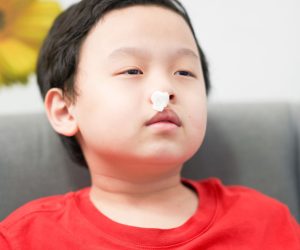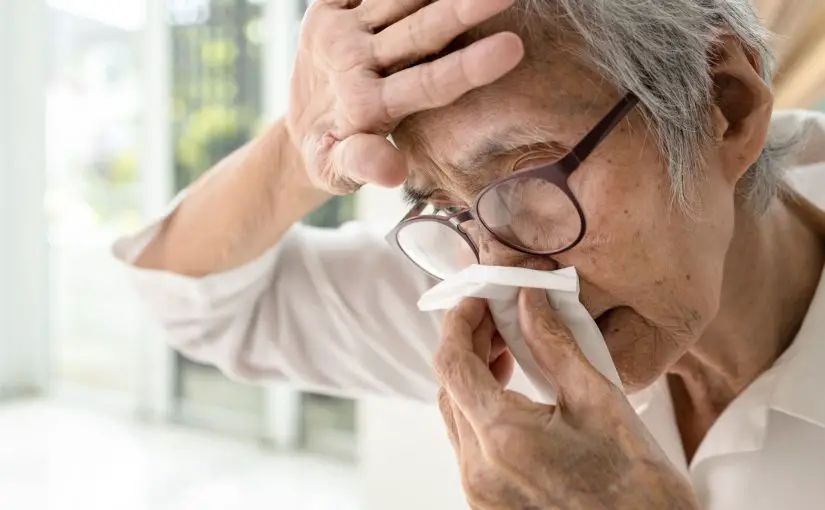Table of Contents
Can a Humidifier Help With Nosebleeds?
 Yes, using a humidifier can help prevent and treat nosebleeds by adding moisture back into dry air. Dry nasal passages are a major cause of nosebleeds, as the lack of moisture causes the delicate nasal tissues to become irritated, inflamed, and more prone to cracking and bleeding. Humidifiers work by releasing water vapor into the air, increasing the humidity level and providing the needed moisture to hydrate and soothe dry nasal airways. This helps reduce irritation, inflammation, and fragility of nasal tissues, making them less likely to erode, crack, and bleed.
Yes, using a humidifier can help prevent and treat nosebleeds by adding moisture back into dry air. Dry nasal passages are a major cause of nosebleeds, as the lack of moisture causes the delicate nasal tissues to become irritated, inflamed, and more prone to cracking and bleeding. Humidifiers work by releasing water vapor into the air, increasing the humidity level and providing the needed moisture to hydrate and soothe dry nasal airways. This helps reduce irritation, inflammation, and fragility of nasal tissues, making them less likely to erode, crack, and bleed.
According to the Mayo Clinic, dry air is one of the most common causes of nosebleeds, along with nasal inflammation and frequent nose blowing. Using a humidifier is an effective way to remedy dry air and prevent many nosebleeds from occurring in the first place.
What Causes Nosebleeds?
There are several potential causes and risk factors for developing nosebleeds:
- Dry nasal passages – Lack of moisture in the nasal tissues dries them out, making them more fragile and prone to cracking and bleeding. This is a very common cause of nosebleeds.
- Nasal irritation – Allergies, colds, sinus infections, and use of nasal decongestants can irritate and inflame nasal tissues, increasing risk of nosebleeds.
- Nose picking – Picking or blowing nose forcefully can rupture delicate nasal blood vessels and lead to bleeding.
- Medications – Blood thinners, aspirin, NSAIDs can make blood vessel walls weaker and more prone to bleeding.
- Trauma – Injury to the nose from impact, falling, or being hit can damage nasal blood vessels.
- High altitude – The dry air at higher elevations can dry out nasal passages.
- Genetics – Some inherited disorders like Osler-Weber-Rendu disease weaken blood vessels.
How Do Humidifiers Prevent Nosebleeds?
There are a few key ways that humidifiers help prevent painful nosebleeds:
Adds Moisture to Dry Air
Humidifiers work by releasing cool or warm water vapor into the air to increase humidity levels. This added moisture counters the drying effect of indoor heating and air conditioning systems, allowing nasal tissues to stay hydrated.
Prevents Nasal Dryness and Irritation
The moist air from a humidifier prevents delicate nasal tissues from becoming painfully dry, flaky, and irritated. This reduces erosion of nasal tissue linings and decreases risk of cracking, bleeding, and nosebleeds.
Soothes Inflammation
Warm mist humidifiers also provide soothing vapors that can relieve nasal congestion and inflammation from colds, allergies, and sinusitis. Less irritation means less fragility and risk of nosebleeds.
Makes Nose Breathing Easier
Breathing dry air through the nose can be uncomfortable. Humidifiers allow easier nasal breathing, reducing mouth breathing which can dry nasal passages.
| Type of Humidifier | Benefits for Nosebleeds |
|---|---|
| Cool Mist Humidifier | Adds hydrating moisture to air, prevents nasal dryness |
| Warm Mist Humidifier | Adds moisture plus soothing vapor for congestion relief |
| Ultrasonic Humidifier | Uses ultrasonic vibration for quiet, invisible moisture output |
| Evaporative Humidifier | Uses natural evaporation, no heat or mist involved |
 Tips for Using a Humidifier for Nosebleeds
Tips for Using a Humidifier for Nosebleeds
Follow these tips to use a humidifier most effectively to prevent painful nosebleeds:
- Pick a cool mist or warm mist humidifier as they are the safest options for the nose and sinuses.
- Use and clean according to instructions to prevent mold growth which can aggravate nasal allergies.
- Keep bedroom humidity between 30-50% for optimal nasal moisture.
- Use distilled or filtered water to minimize mineral deposits in humidifier.
- Run the humidifier constantly or set on a timer if noise is disruptive for sleep.
- Place humidifier near the bed but not too close to avoid excess moisture.
- Portable travel humidifiers can help in dry climates, offices, hotels etc.
Other Ways to Prevent Nosebleeds
While humidifiers are helpful, also consider these other tips for keeping your nasal passages healthy and preventing nosebleeds:
- Use a saline nasal spray or gel to moisturize nasal airways.
- Apply a thin layer of petroleum jelly just inside nostrils to seal in moisture.
- Try a nasal moisturizing gel like Rhinaris inside nasal openings.
- Nasal rinses can remove irritants while soothing inflamed tissues.
- Avoid overusing nasal decongestant sprays which can worsen nasal dryness.
- Stay hydrated by drinking plenty of water daily.
- Be gentle when blowing nose – don’t pick or rub.
- Use a humidifier at work or school if air is very dry.
When to See a Doctor for Nosebleeds
While occasional minor nosebleeds can be managed at home, consult a doctor if you experience:
- Frequent nosebleeds without a known cause
- Nosebleeds lasting longer than 20 minutes
- Nosebleeds along with other symptoms like dizziness or headaches
- Bleeding that is rapid, or flows down the back of the throat
- Inability to stop the bleeding with typical home treatments
- Nosebleeds requiring frequent medical attention
- Nosebleeds that interfere with daily activities or sleep
A doctor can help determine if an underlying condition is causing chronic nosebleeds, and seal off problematic blood vessels using cauterization. They may pack the nasal cavity with special medicated dressings that promote healing. For recurrent nosebleeds, they may refer you to an ear, nose and throat specialist for further evaluation and treatment.
Preventing Nosebleeds in Children
Nosebleeds in children are common and usually not serious, but proper care is important. Causes are similar to adults but children may more readily pick or rub their nose. Ensure your child:
- Uses a saline nasal spray and hydrates nasal passages
- Avoids nose picking/rubbing
- Blows nose gently
- Uses a pediatrician-recommended nasal moisturizer
- Has cool humidified air in bedrooms
For a nosebleed, have child sit leaning forward, apply an ice pack to bridge of nose, and pinch nostrils shut firmly for 10 full minutes continuously. See a pediatrician if bleeds are frequent or severe.
The Bottom Line
Using a cool mist or warm mist humidifier can be an excellent way to add moisture back into dry indoor air and prevent many painful nosebleeds. Along with saline sprays, nasal moisturizers, and good humidification habits, most cases of nosebleed can be avoided. See a doctor promptly if you experience frequent, heavy, or unexplained nosebleeds not relieved by home treatment. With some attentive self-care and a trusty humidifier, you can breathe easier all year long without the nuisance of a bloody nose.


 Tips for Using a Humidifier for Nosebleeds
Tips for Using a Humidifier for Nosebleeds





